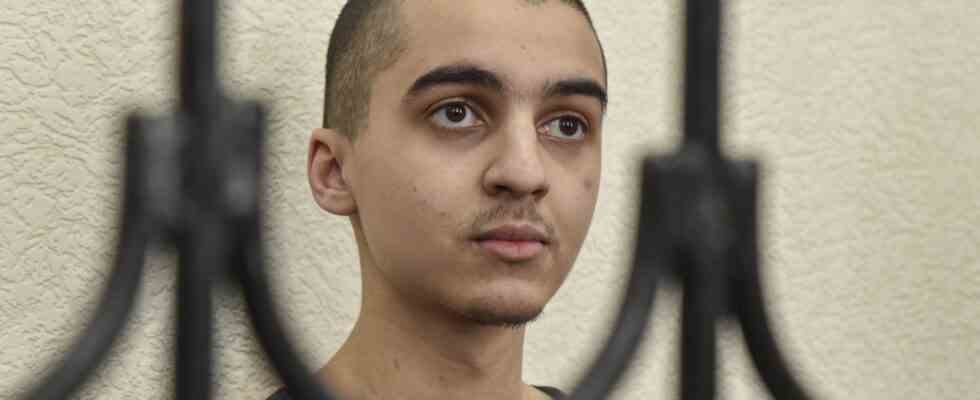Status: 07/19/2022 3:25 p.m
Moroccan Brahim Saadoune fought for Ukraine – he was taken prisoner in the separatist area in Donetsk. Now he faces the death penalty. Saadoune’s family feel abandoned by the Moroccan authorities.
Brahim Saadoune sent a video message from eastern Ukraine home – to Morocco. His head is shaved, his expression serious, he has dark shadows under his big eyes. “Hello mom and dad, I’m fine. Don’t worry about me. I did what I had to do. Mom, don’t worry about me – everything will be fine.”
The 21-year-old was interviewed by a Russian journalist while he was in custody. Thousands of kilometers away, his older sister Imane Saadoune, who lives in Finland, received a message on her cell phone. At first she didn’t understand how tragic the video was: “I thought it was just a video of him saying he was fine. Since I lost contact with him for a while, I’m not sure understood what was happening over there – but then I realized: He is in captivity.”
Until the video recordings, the case in Morocco was largely unknown. Imane and her family are trying to contact the authorities and get information. A marathon begins.
“The Moroccan authorities were so quiet from the start,” she laments. “And the worst thing is that I feel like they tried to hide his case from everyone.” When the family called the Moroccan embassy in Ukraine and gave his name, the staff “acted as if he didn’t exist. And you could hear the fear in their voices,” she says. “I just don’t understand why. But the Moroccan authorities haven’t done anything yet. Nothing.”
NGOs speak of a show trial
Only late did the authorities publicly confirm that Brahim was captured as a member of the Ukrainian army. They point out that he was detained by an organization that is recognized neither by the United Nations nor by Morocco.
Morocco’s hesitant behavior could also be due to its relationship with Russia. Among other things, the two countries maintain close economic ties, and Morocco has been trying to remain neutral at the United Nations since the beginning of the Russian invasion – the kingdom has not condemned Russia’s attack on Ukraine.
Because of the lack of support from the authorities, Brahim’s father, Taher Saadoune, gives press conferences. There he turns to the Moroccan government, to those responsible in Donetsk, even to Vladimir Putin – after all, his son was arrested by Russia, as he says. “I didn’t get a call at all, not from the State Department, nothing at all,” he says.
Human rights organizations describe what is happening in the self-proclaimed “Donetsk People’s Republic,” which Moscow recognizes, as a show trial. Together with the relatives of the prisoners, they fight for publicity. Imane constantly gives interviews for radio and television in different languages and posts pictures of her brother as children on social media.
Hardly any support in their own country
The family received encouragement via the hashtag #savebrahim, which his friends in Ukraine started – but not only: Looking at social media in Morocco, Brahim’s sister Imane gets sick, she says. She complains of hate, even of applause for his death sentence.
The saddest thing is that not even his own compatriots care about him and some even call for his execution. Some people are nice, share the hashtag and say a few nice words. But many, many people are even glad that he will die like this. Some of them go so far as to say: if he doesn’t die there and I see him on the street, I’m ready to kill him.
The hatred is said to stem in part from the fact that Brahim did not clearly identify himself as a Muslim in a video, but as an agnostic. But all of this is not really understandable, says Imane. The comments on the net would break her mother’s heart in particular, she had become ill about it.
Imane fears that Brahim will be quietly shot by the Separatists. For her and her family, every day feels like a race against time. “I just want him back,” she says. “That is my only wish.”

